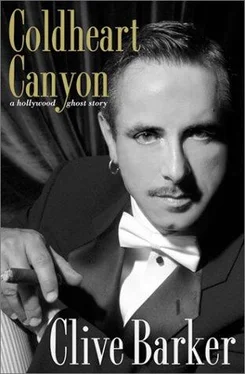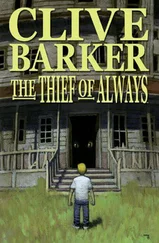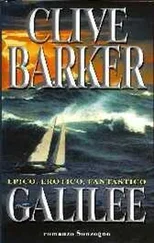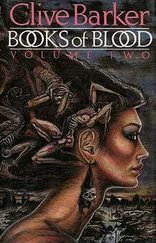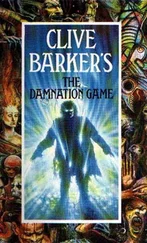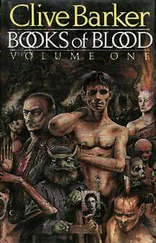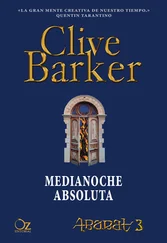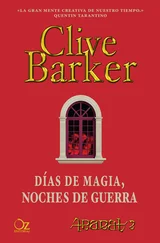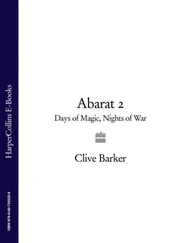Clive Barker - Coldheart Canyon
Здесь есть возможность читать онлайн «Clive Barker - Coldheart Canyon» — ознакомительный отрывок электронной книги совершенно бесплатно, а после прочтения отрывка купить полную версию. В некоторых случаях можно слушать аудио, скачать через торрент в формате fb2 и присутствует краткое содержание. Жанр: Фантастика и фэнтези, на английском языке. Описание произведения, (предисловие) а так же отзывы посетителей доступны на портале библиотеки ЛибКат.
- Название:Coldheart Canyon
- Автор:
- Жанр:
- Год:неизвестен
- ISBN:нет данных
- Рейтинг книги:5 / 5. Голосов: 1
-
Избранное:Добавить в избранное
- Отзывы:
-
Ваша оценка:
- 100
- 1
- 2
- 3
- 4
- 5
Coldheart Canyon: краткое содержание, описание и аннотация
Предлагаем к чтению аннотацию, описание, краткое содержание или предисловие (зависит от того, что написал сам автор книги «Coldheart Canyon»). Если вы не нашли необходимую информацию о книге — напишите в комментариях, мы постараемся отыскать её.
Coldheart Canyon — читать онлайн ознакомительный отрывок
Ниже представлен текст книги, разбитый по страницам. Система сохранения места последней прочитанной страницы, позволяет с удобством читать онлайн бесплатно книгу «Coldheart Canyon», без необходимости каждый раз заново искать на чём Вы остановились. Поставьте закладку, и сможете в любой момент перейти на страницу, на которой закончили чтение.
Интервал:
Закладка:
All of this, of course, only added to her spiraling sense of anxiety, mingled with more than a touch of paranoia. If she answered the door to the delivery boy and caught sight of somebody in the street outside she naturally assumed the passer-by was spying on her. At night she heard noises on the roof and woke more than once certain that one of Katya's los ninos had found its way to Rio Linda and was scrambling over the eaves, trying to get down to her bedroom window.
In saner moments (which became fewer and fewer), she knew all this was nonsense. But the very fact that she had saner moments implied that she was slowly giving herself up to lunacy. It was all very fine for Jerry Brahms to talk about having his cancer cured by the power of the room (and maybe he had; she didn't discount the possibility), but she felt as though whatever she'd been given in the Devil's Country it was affecting her mind not her body, and it was not doing anything remotely healing. Quite the reverse. It was deconstructing her grip on reality, piece by piece. Some days when she woke the dreams remained attached to her all day like pieces of lint. She'd go through her waking hours in a half-stupefied state, coming into rooms and not knowing why she was there; leaving them again and remembering, then forgetting as she turned round. She was in a constant state of exhaustion. Her lids were like lead. Once, in the middle of the day, she found herself on her hands and knees in the bathroom, working at the tiles with her bare hands and Ajax, attempting to remove some spidery sketches of a certain country that she'd daydreamed into creation. Another time, she'd gone into the kitchen to find the faucet running, and a shape in the sink that looked like a piece of roadkill; a matted pelt, two rows of sharpened teeth set between black leathery lips. The force of the hot water slowly turned the cadaver over and showed her the broken head of something she'd seen in the Canyon, or in her dreams of the Canyon, foul beyond words.
She turned off the faucet. Steam rose from the mouth of the thing, like a last breath. Then it melted, fur and teeth and all, and was gone down the plug-hole.
"Hmm," she said to herself, unimpressed by this ugly little show. Somehow she'd always imagined madness to be a more dramatic thing than this. Again the movies had it wrong. There was no grandeur in it; no exquisite folly. Just a pile of teeth and dirty fur in the kitchen sink.
That said, she knew that her mental decline was gathering speed. She needed to do something about it soon, or this journey she was taking was going to take her away from herself completely. She would be a blank-eyed thing sitting at the kitchen table, wiped clean by banalities.
FIVE
While Jerry was giving thanks for his new life, and Tammy was dealing with the grim illusions in her kitchen sink, Maxine was in a very different frame of mind. Her injuries were remarkably slight, given all that she'd gone through. Within a week she was physically ready to return to her offices and attempt to pick up business. But most of the calls she got in the first week weren't business calls at all but gently inquiring conversations that rapidly gave way to interrogation. It seemed as though everyone in Hollywood wanted to know about events at the house in Coldheart Canyon.
In truth, she had no desire to tell her story to anyone, not even her closest friends. Ghosts and rooms laid with tile providing visions of another world-this was not the stuff she could have shared with any of her contemporaries without being mocked. But she had to say something, or she was going to start making even more enemies than she already had. So she concocted a version of events without supernatural elements. In the censored version, Todd had indeed been hiding away because of work done to his face (it was no use lying about that any longer: he'd admitted to the surgery at her party), and there he'd been stalked and finally-sadly-murdered by his stalker. Most of the people she talked to accepted this bowdlerized version of events, at least for the duration of the conversation. But those few loyal sources she still had around town reported something very different back to her. Everyone had their own version of what had happened in Coldheart Canyon, ranging from the ludicrous to the actionable, and they were spreading it around freely. Whatever the version of the story-and they ranged from murder mystery to ghost-stories-they had this in common: Maxine was the villain.
She was to blame for knowingly putting her innocent client in a house that was haunted; she was to blame for not warning him that a close friend was a murderer (this version had started in The Enquirer, and required another star as murderer. The Enquirer, of course, claimed to know who it was, and would soon be in a position to reveal the name of the guilty party. What they could already say with confidence was that Maxine Frizelle had known of the plan against Todd's life, but simply hadn't taken it seriously). She, in short, was the reason he was dead. It seemed that nothing she could say or do persuaded people that this wasn't the case. Years of resentment towards her surfaced now as her enemies elaborated version after version of what had gone on in the Canyon, each one less flattering to Maxine than the one before.
She eventually gave up attempting to put people straight on such matters. People would believe what the hell they wanted to anyway. She'd learned that after twenty-two years in the business. You could sometimes guide people's opinions, but if they didn't want to buy what you had to sell you could shout yourself hoarse trying to make them do it and it would never work.
After a few days of fruitless endeavor she became curiously immune to all the gossip flying around, and just got on with trying to get to see some new talent. She was an agent without a major client, which meant that as far as the town was concerned there was no reason to take her calls, especially as she wasn't playing ball and offering up the inside scoop on what a psychic hired by the Fox Channel to wander round the Canyon called 'the most haunted piece of real estate in Hollywood.'
In other words, everybody knew there was more to this-a lot more than they had been told so far-and it was only a matter of time before somebody started to talk.
That somebody was Patrick Rooney, the detective at the Beverly Hills Police Department who'd done the initial work on the Pickett case. At fifty-eight he was very close to retirement, and was looking at a life on a middle-ranking detective's pension. Life would not be lush, he knew. Although he didn't have an expensive life-style he had all the normal outgoings: alimony, a mortgage, car payments (he ran three cars, one of his few concessions to self-indulgence), plus a well-stocked bar and a habit of smoking between forty and fifty cigarettes a day. He'd already calculated the dip in his standard of living he'd have to take when he left the force. It was going to be substantial.
But here-dropping into his lap like a gift from God-was the answer to all his problems. He'd been told the story first by the Lauper woman, and later by Maxine Frizelle. Though their accounts had been outlandish, to say the least, they had also been remarkably consistent. Something weird had happened up in the Canyon and whether it was true in part or not at all scarcely mattered. What mattered to Rooney was that people loved this kind of thing. There was profit to be made here. Enough to make his retirement look a lot more cozy.
He began to make surreptitious copies of the interviews and smuggle them out of the station, with an eye to assembling them all into book form. It wasn't hard to do; if he asked for copies of a record in order to advance some particular aspect of the case then nobody challenged the request. In a short time he had amassed at home eleven bulging files of material on the 'Canyon' case: enough to start editing and collating.
Читать дальшеИнтервал:
Закладка:
Похожие книги на «Coldheart Canyon»
Представляем Вашему вниманию похожие книги на «Coldheart Canyon» списком для выбора. Мы отобрали схожую по названию и смыслу литературу в надежде предоставить читателям больше вариантов отыскать новые, интересные, ещё непрочитанные произведения.
Обсуждение, отзывы о книге «Coldheart Canyon» и просто собственные мнения читателей. Оставьте ваши комментарии, напишите, что Вы думаете о произведении, его смысле или главных героях. Укажите что конкретно понравилось, а что нет, и почему Вы так считаете.
